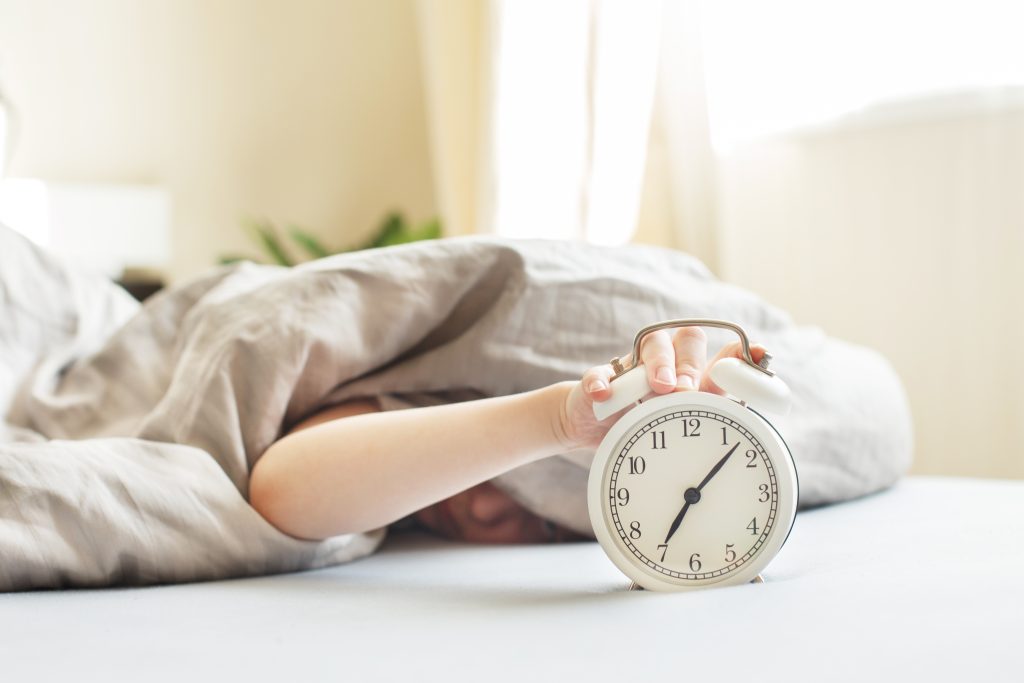
Changing the clocks: A fresh start on sleep habits
Changing our clocks means a fresh start on sleep habits!
Good quality sleep helps to reset our minds and bodies and encourages improvements in behavior, learning, memory, emotional regulation, mental health and physical health. Not getting enough sleep can lead to an increased risk for obesity, depression, hypertension, diabetes, accidents and injuries.
The Children’s Exercise and Nutrition Clinic at McMaster Children’s Hospital has been helping children and families meet healthy lifestyle goals for almost 40 years. Nurse practitioner Carline Gutierrez speaks to families about sleep all the time — and wants to share her knowledge just in time for the upcoming time change.
How much sleep do we actually need?
The first step to achieving good quality sleep is understanding how much sleep we need. This varies across age groups.
- 0-3 months old: 14-17 hours
- 4-11 months old: 12-15 hours
- 1-2 years old: 11-14 hours
- 3-5 years old: 10-13 hours
- 6-13 years old: 9-11 hours
- 14-17 years old: 8-10 hours
- 18-25 years old: 7-9 hours
- 26-64 years old: 7-9 hours
- 65 or more years old: 7-8 hours
How to improve your sleep quality
Good sleep practice — or what we often refer to as sleep hygiene — refers to the routines and behaviours that help you achieve good quality sleep. Below are a list of tips and tricks to improve your sleep hygiene:
- Maintain consistent bed and wake times
- Avoid caffeine and nicotine a few hours before bed
- Create a bedtime routine that you can easily do each night. For example: wash your face, brush your teeth, use the washroom, change into pajamas, 10 minutes of reading, lights out and sleep!
- Turn screens off 60 minutes before bed and reduce access to screens in your room
- Create a comfortable environment in a dark, cool room
- Avoid naps after the age of five years old and after 4 p.m. If you nap for too long, or too late in the day, it can impact your ability to fall asleep at your desired bedtime.
- Exercise regularly during the day and not close to bedtime. This helps deepen our sleep.
- If you have been trying to sleep for more than 20 minutes, try getting up and doing something relaxing/boring for a few minutes. Avoid screens during this time. Return to bed and try again.
- Use a bedtime calculator with the above sleep duration recommendations. “If I have to wake up at [XX] a.m., and I need [XX] hours of sleep, then I should be sleeping by [XX] p.m.!”
Managing time change for kids
During the upcoming time change, everything is shifted by an hour. Some families won’t be phased by the time change. In fact, it might be helpful to manage a desired change to bedtime or wake time. For families who want to keep their current sleep schedule, below are some suggestions for your family to help manage.
- Keep Saturday night’s bedtime the same.
- Wake your child(ren) up at their normal desired wake time according to the new clock time.
- Plan the day accordingly. When the clocks go forward, fill the day with activity! Make sure the kids get lots of physical activity on Sunday to get them ready for what will seem like an earlier bedtime for them. When the clocks go backward, plan a restful day to try and keep them up an hour later.
- If your kids aren’t of napping age, don’t change it today! Try to keep them awake all day, even if they are appearing a bit more tired than normal.
- If they are having trouble falling asleep, reset and try 30 minutes later with the same bedtime routine you always do.
- Wake them up Monday morning as you normally would!




